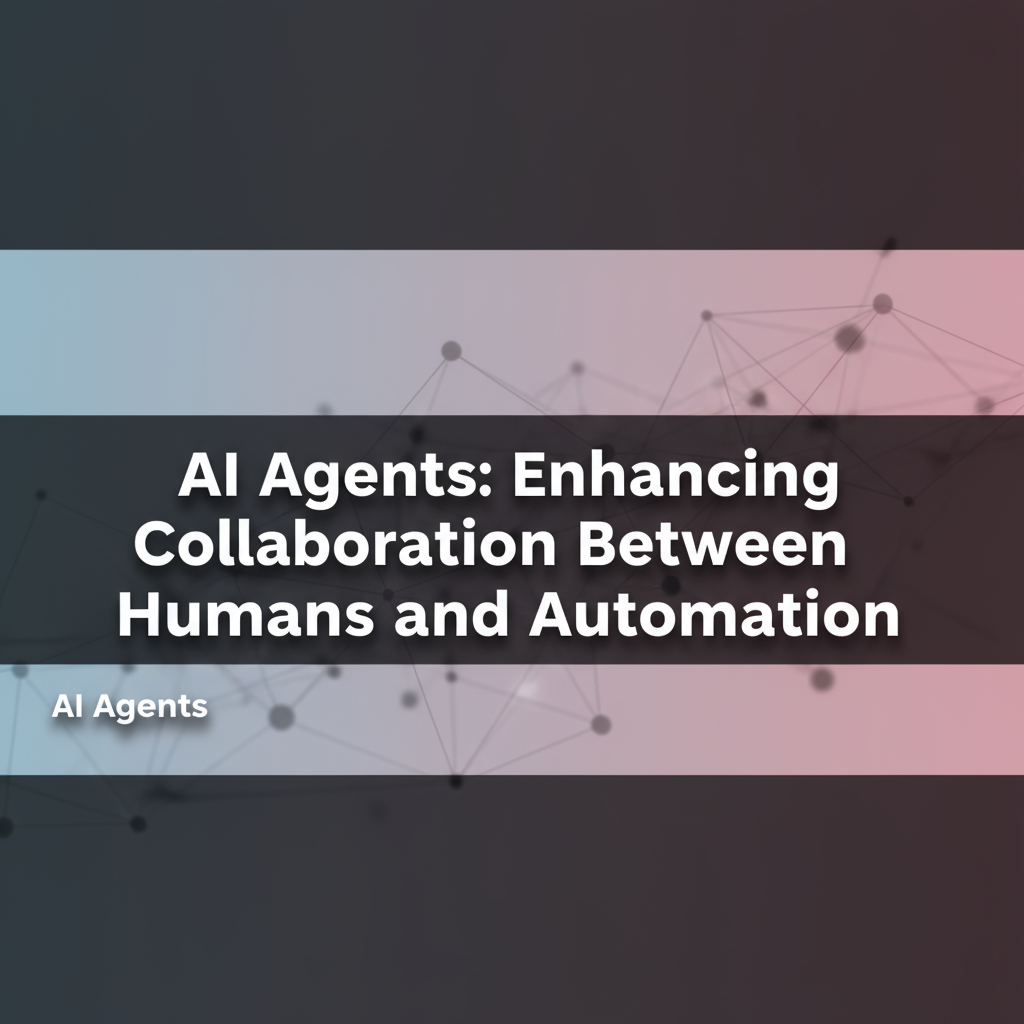AI Agents: Bridging the Gap Between Human Intelligence and Automation
Estimated reading time: 5 minutes
- AI agents enhance human capabilities while automating routine tasks.
- They utilize machine learning and natural language processing for adaptation.
- AI agents significantly improve decision-making and personalization.
- They are pivotal in transforming workforce dynamics and individual task execution.
- The future involves a collaborative model where AI augments, rather than replaces, human roles.
Table of Contents
- Understanding AI Agents
- Core Functions and Features of AI Agents
- Bridging the Human-Machine Gap
- Collaboration, Oversight, and Future Trends
- Key Implications
- Conclusion: The Future of AI Agents
- FAQ
Understanding AI Agents
AI agents are essentially intelligent software systems designed to perform tasks autonomously. Unlike traditional automation tools that operate on set instructions, AI agents leverage machine learning and natural language processing (NLP) to adapt and improve over time. Their functionality spans various levels of complexity, enabling them to execute tasks ranging from simple data entry to intricate data analysis and strategic decision-making.
Core Functions and Features of AI Agents
- Autonomous Decision-Making: AI agents assess contexts and act on data inputs, excelling in environments requiring rapid responsiveness.
- Learning and Adaptation: They enhance performance through past interactions and outcomes, becoming progressively more effective at tasks.
- Natural Language Processing (NLP): NLP capabilities allow AI agents to understand and generate human language, aiding interactions.
- Task Automation and Augmentation: AI agents manage repetitive tasks, freeing human employees for creative and critical thinking responsibilities.
Bridging the Human-Machine Gap
AI agents serve significant roles in enhancing the synergy between human workers and automated systems, reshaping collaboration and function.
Enhanced Human-Machine Interaction
Advanced conversational AI technologies contribute to seamless communication between users and machines, improving user experiences in healthcare and e-commerce.
Improved Decision-Making
AI agents analyze vast datasets and provide actionable insights, aiding businesses in risk assessment and strategic planning.
Personalization
By understanding user preferences, AI agents deliver personalized content or product recommendations, enhancing satisfaction and loyalty.
Workforce Integration
Agentic AI helps integrate into existing roles, allowing employees to focus on value-added tasks while AI manages data and workflows.
Collaboration, Oversight, and Future Trends
As AI technology advances, collaboration between AI agents and human workers becomes essential.
Human-Agent Collaboration
Research emphasizes that AI agents should augment human capabilities, increasing productivity and improving the quality of work.
Ethical Alignment and Oversight
AI integration must align with goals and ethical standards, maintaining human oversight even as AI operates autonomously.
Multi-Agent Systems
Business complexity may require AI agents to collaborate in multi-agent systems, handling interconnected tasks efficiently.
Workforce Transformation
AI integration is reshaping required skills, making understanding of AI’s role crucial for future workforce challenges.
Key Implications
- Industrial Productivity: AI agents enable businesses to streamline processes and achieve cost reductions.
- Diverse Applications: AI agents find uses in finance, healthcare, and e-commerce, providing value to both customers and employees.
- Shift from Automation to Augmentation: Current frameworks advocate for enhancing human capabilities rather than replacing jobs.
Conclusion: The Future of AI Agents
AI agents represent a leap in blending human ingenuity with machine efficiency. Their role in enhancing human capabilities while automating tasks fosters a productive, personalized, and collaborative environment. The focus lies in leveraging AI for augmentation—helping organizations thrive amid digital transformation.
At Your Company Name, we specialize in AI consulting services that help businesses harness the potential of AI agents. Contact us to learn how we can assist you in integrating AI solutions tailored to your needs.
FAQ
What are AI agents?
AI agents are intelligent software designed to perform tasks autonomously using machine learning and NLP.
How do AI agents enhance decision-making?
They analyze vast datasets and provide actionable insights for strategic planning.
What are the impacts of AI on the workforce?
AI reshapes required skills and allows human workers to focus on value-added tasks.
Are AI agents replacing jobs?
AI agents are designed to augment human capabilities instead of merely replacing jobs.
What are the future trends for AI agents?
The future involves collaboration between AI agents and human workers, focusing on ethical alignment and multi-agent systems.
